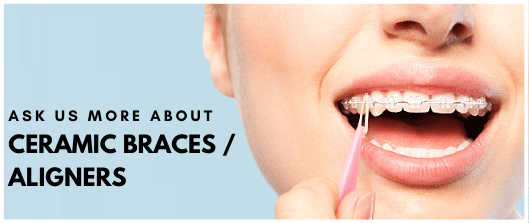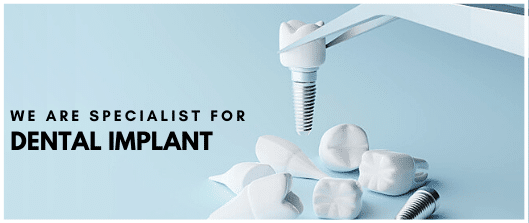
Smile Makeover and Full Mouth Rehabilitation
Full-mouth rehabilitation, sometimes called reconstruction or rejuvenation is the individual recreation of each tooth in a mouth. Full-mouth rehabilitation is needed when the teeth are worn down, broken, missing or if you experience pain in the jaw joint, headaches, back pain, muscle tenderness or clicking or popping of the jaw, then you should consider this procedure, causing problems in both the bite and appearance of the mouth. Full mouth rehabilitation utilizes current technologies to reshape and rebuild one’s teeth, gums and surrounding areas. One or several procedures may be necessary to obtain the effects desired. The end result is an enhanced appearance that allows the patient to enjoy the confidence and attractiveness you have always desired.
Full Mouth Rehabilitation corrects imperfections in bite position and enhances the appearance of your smile. Anyone with short, worn teeth or those that are chipped and broken throughout the mouth would be an excellent candidate.
Combining the science of Neuromuscular Dentistry with the artistry of Cosmetic Dentistry, Full Mouth Rehabilitation creates a smile that is functional, comfortable and beautiful.
Neuromuscular Dentistry measures and determines the optimal position of the jaw. Once determined, the jaw position is corrected with the use of an orthodontic (a virtually invisible appliance that fits over the top of the lower teeth, gently repositioning the jaw) or the application of dental restorations, including porcelain veneers, crowns or onlays. As an added benefit, the restorations are exceptionally attractive and strong, enhancing the smile beautifully.
How It’s Done?
Using advanced technology, we measure your jaw’s muscle function in both stressed and relaxed positions. If an imbalance is determined, we will decide whether to treat with dental restorations. We will use beautiful porcelain restorations, dental crowns, dental veneers or onlays that can raise or lower the bite to achieve the most comfortable jaw position. With this correction, you experience decreased or eliminated pain and discomfort, and better overall health and function.
Am I a Candidate?
If you answer yes to any of the following statements, you are a candidate for Full Mouth Reconstruction:
- I have TMJ problem (temporomandibular joint syndrome)
- I experience frequent headaches or migraines
- I have unexplained loose teeth
- My teeth are worn, chipped or cracked
- My dental restorations frequently crack, chip or break
- I have pain or soreness around my jaw joints
- I have pain in my teeth that seems to move around
- I have facial, neck, shoulder and/or back pain
- There are clicking or grating sounds in my jaw joints
- I have unexplained numbness in my fingers and arms
- I have unexplained congestion or stuffiness in my ears
Bruxism (Grinding your teeth)
What is bruxism?
Bruxism (pronounced BRUK-sizm) is the technical termfor forcible grinding and clenching of the teeth. It usually happens at night, during sleep, although some people grind their teeth during the day as well. People who suffer from bruxism may also bite their fingernails or pencils, or chew the insides of their cheeks.
How common is bruxism?
About half of US adults grind their teeth at night, and about 20% (over 40 million people) grind their teeth in a destructive way. Most people who grind their teeth are over 25 years old, and the disorder affects women and men about equally. Children also grind their teeth, but usually in response to discomfort caused by colds, ear infections or allergies. Most cases of bruxism in children resolve on their own without causing tooth damage or other problems.
What causes bruxism?
Bruxism can have a variety of causes, but the most common are probably emotional factors such as daytime stress, anxiety, anger, pain and frustration. Certain sleep disorders can trigger grinding of the teeth as well. People who are competitive, aggressive, and rushed may also be at greater risk for bruxism. Lastly, alcohol and some types of medications may worsen tooth grinding.
Why bruxism can be a serious problem:
When you chew your food, your deliver a force of about 175 pounds per square inch (psi) to your teeth. But when you grind your teeth at night, there’s no food to absorb the impact, so the force on your teeth can be 300 psi or more. That’s enough to cause permanent damage to your teeth, including cracked and chipped enamel, hairline fractures, and even wearing down of the teeth to the gumline. The enamel may become so worn that the inside of the tooth (called the dentin) is exposed. If bruxism isn’t treated, it can lead to gum damage, loss of both natural teeth and restorations, and other more complicated jaw-related disorders (such as TMJ known as temporomandibular joint disorders). Over time, your teeth may become sensitive due to exposed dentin, and your jaws may even move out of proper balance. Grinding your teeth can also cause a wide variety of other symptoms including soreness and fatigue in your jaw and facial muscles, and earaches or headaches-especially when you wake up in the morning. There is no known cure for bruxism. Fortunately, there are ways to reduce or stop your grinding and even ways to limit further damage and pain due to grinding.
DO YOU GRIND YOUR TEETH?
How to find out if you’re grinding your teeth?
Because most bruxism happens at night, most sufferers aren’t even aware of it until a sleep partner mentions the noise (an extremely disturbing sound, like fingernails on a blackboard), or until a dentist notices that their teeth are damaged. Here are some typical symptoms that may indicate nighttime teeth grinding:
Symptom checklist:
- Jaw or facial pain and tenderness on awakening that lessens throughout the day
- Headaches or earaches in the morning that go away as the day wears on
- Spouse or sleep partner complains that the noise is keeping them awake at night
- Teeth have become sensitive to cold, pressure, or other stimuli
- Indentations on tongue
- Tips of teeth appear flattened
What to do if you think you may be grinding your teeth:
If you think you might be grinding your teeth at night, the first thing to do is visit your dentist to assess any possible damage. It’s essential to halt the course of the disease to prevent or arrest damage to your teeth, gums, and jaws.
Night Guard is also used as therapy to treat these conditions.


